by Winnie Tam
We were all asked this once: what do you want to be when you grow up? In addition to the usual answers of astronaut, doctor and marine biologist, young people in the Lower Mainland are increasingly considering an alternative profession – farmer.
The trend can be attributed to a variety of factors. Some are tired of the nine-to-five grind and want to look for a job that puts them more in touch with nature. Others are motivated by their heightened food literacy and concerns about the global food system. Then there are those who want to shed themselves of technological clutter and return to simpler vocations. Whatever the reason, the demand for knowledge is definitely there, as Kwantlen Polytechnic University runs a popular 10-month program – the Richmond Farm School – that teaches students the skills to engage in small-scale agriculture. Some of the students have gone on to purchase a rural or urban farm, adding an exciting supply of locally grown produce to the Lower Mainland.
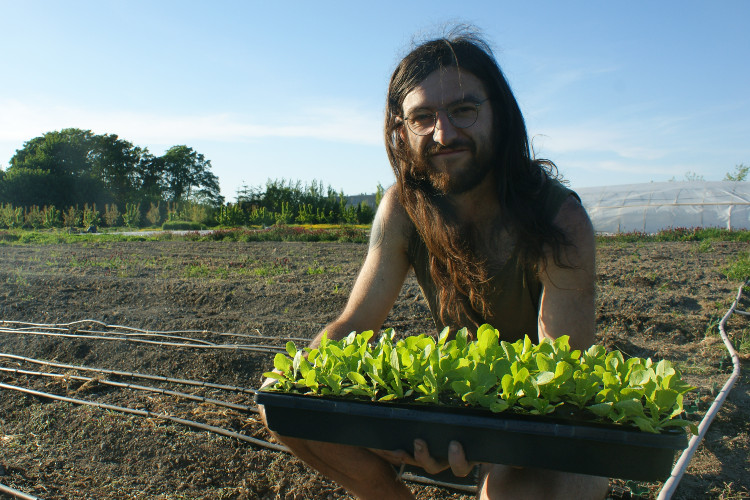
Both in their 20s, Caroline Chiu and Brendan Lench are recent graduates of the program. They run a small farm called Golden Choy Farm together in Richmond. (“Choy” means vegetable in Chinese.) Their produce fills a need for Asian vegetables that are fresh and locally grown.
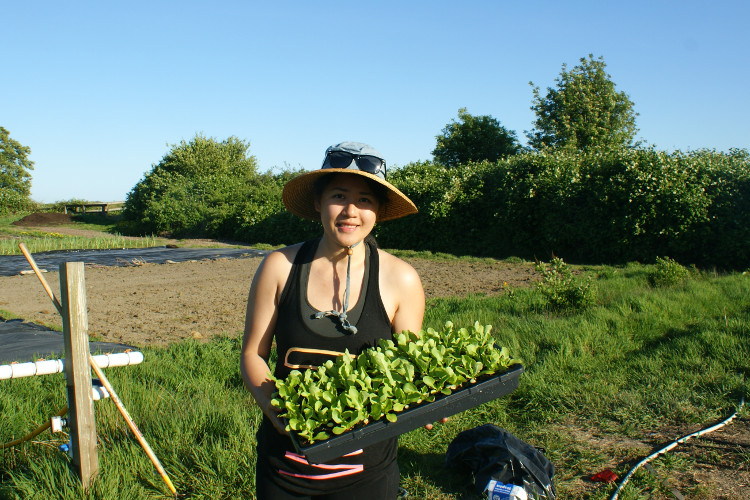
I sat down with them to find out more about their alternative career choice and what they’ve learned so far.
Winnie Tam: What got you interested in farming?
Brendan Lench: For me, it’s the desire to interact intimately with the natural world, to be away from the hustle and bustle of the big city, and participate in a fundamental act: growing food. My family has been farming for generations and thus I have a fondness for rural life.
Caroline Chiu: I grew up in Hong Kong where I didn’t get to learn much about agriculture living in the city, so studying agriculture economics at UBC was very refreshing for me. Living in BC with nature as our playground made me want to connect with it in ways that are more than just a hobby. I decided to dig deeper into agriculture production by volunteering at a farm up in Pemberton, BC, to experience not only the day-to-day farm activities, but also the lifestyle of farmers and the values that they have to pursue this career. It was an enlightening experience and I thoroughly enjoyed the simplicity and fulfillment of doing honest work and providing the basic need of fresh food to customers.
Compared to our parents’ generation where staying in the same profession that they had studied was the norm, we’re privileged in this generation where we have the flexibility and the opportunities to explore different things, as opposed to just having a stable income; it is just as important for us to find a job that feeds our souls.
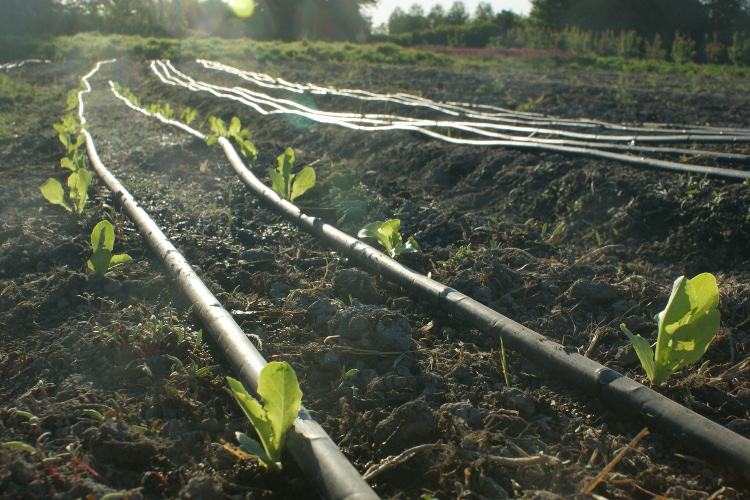
WT: What type of produce do you grow?
CC: Primarily vegetables used in East Asian cuisine, so bok choy, siu choy, yu choy, gai choy, gai lan, tong ho, ong choy, daikon radish, celtuce, scallions, onions, eggplant and bitter melon. We’re also trying to grow mushrooms: oyster, monkey head and king stropharia.
WT: How did you decide on what to grow?
CC: We felt that there was a niche to be filled, as the majority of Asian produce sold in the Lower Mainland is grown in a large-scale conventional manner or is imported. Even though there are plenty of grocery stores and supermarkets selling a variety of Asian vegetables and mushrooms, we realized that they were lacking at farmers’ markets, so we wanted to fill that gap and provide locally grown, chemical-free alternatives. As with mushrooms, it’s such a high-value crop, yet there is still a gap for mushrooms at farmers’ markets.
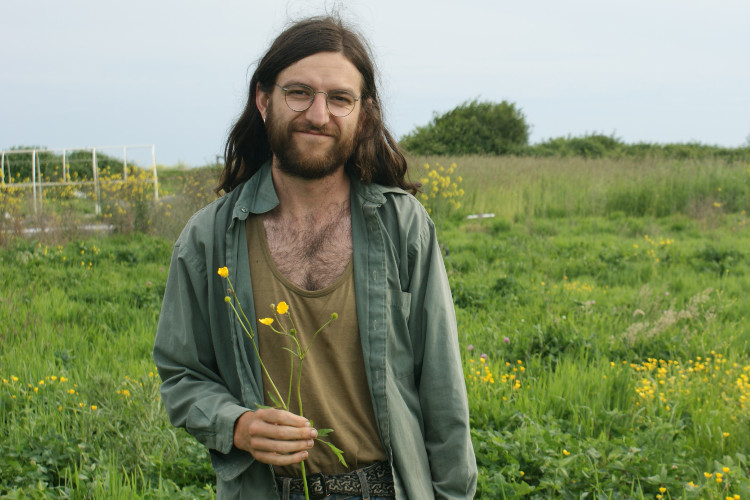
WT: What does a typical day on the farm look like for you?
BL: As this is our first year farming, we didn’t want to give up our current jobs and fully dive into farming, so we both have full-time jobs off the farm. We often have to squeeze farm work into any free off-hours in the early mornings, evenings and weekends. As the season has just begun, we do a lot of seeding in early spring and leave them in the hoop-house (a small greenhouse) for them to grow until they’re ready to go in the ground. Typically, Caroline gets up at the crack of dawn to check on our seedlings and water them as needed, and provide ventilation to the hoop-house. I head out in the evening again to check, and if the weather is cooler, to close the hoop-house to insulate the seedlings. Most Saturdays and Sundays are spent together preparing the land, and seeding or planting. As we move into summer time, the farm will get busy with weed management, more plantings and seeding, harvesting and going to farmers’ markets.
It might sound very tiring, but our full-time jobs include working in an office all day long, so having the alternative of being outside is great. There’s always something happening at the farm and the everyday tasks are always changing and unpredictable, so we’re being challenged everyday with new problems that need to be solved. Farming is dependent on so many uncontrollable factors such as pests and weather, so sometimes our crops could potentially be destroyed overnight with a sudden cold snap in the weather. It’s definitely a job where we just have to keep going, and not be deflated too easily.
On top of doing physical work at the farm, there is also a lot of paperwork and planning that happens on a daily basis. Like any self-owned businesses, we have to be experts in accounting, budget planning, machinery, soil health, plant nutrients, marketing, customer service etc. We wear many hats.
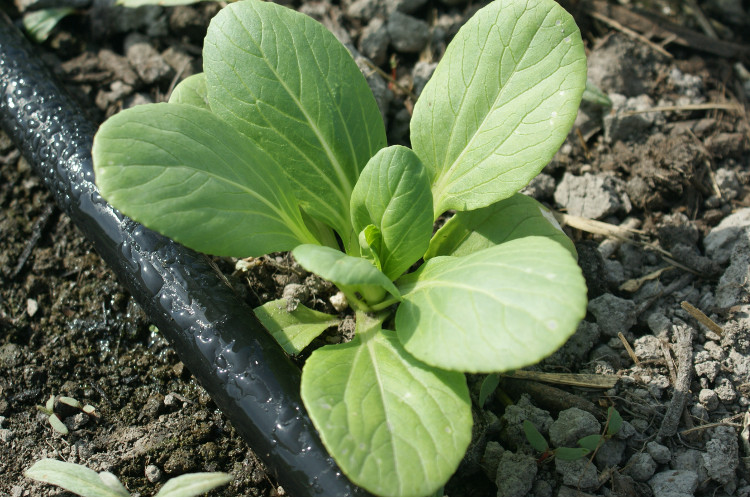
WT: Where is your farm located? Do you allow people to visit?
CC: Our farm is situated on the picturesque westernmost border of Richmond near Gilbert Road and Dyke Road. The entire farm site is open to the public, so please come on by! This is the incubator farming site for farm school graduates, so you will find other farmers there as well. If you’re familiar with Richmond – we are right by the dyke, which is a popular place to walk or bicycle and enjoy the maritime scenery.
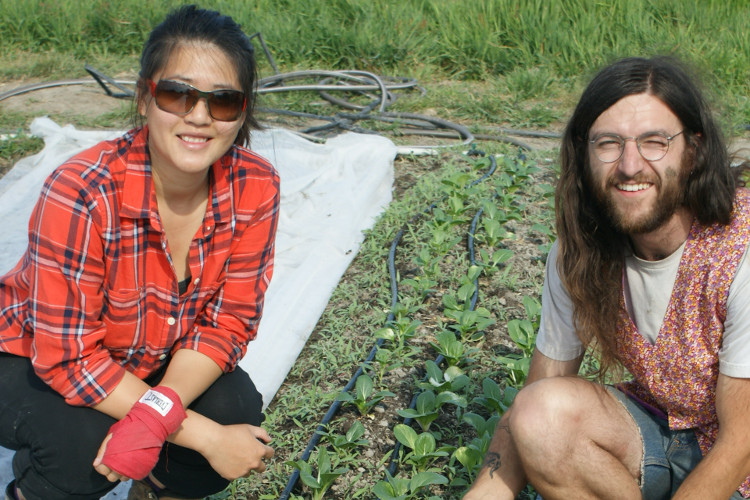
Learn the latest with Caroline and Brendan by liking their farm’s Facebook page www.facebook.com/goldenchoyfarm. You can also support them by visiting them at various farmers’ markets across the Lower Mainland this season:
Steveston Farmers’ and Artisanal Market
Select dates from May 8 – October 16, 2016, 10am to 3pm
Mount Pleasant Farmers’ Market
Sundays June 12 – October 9, 2016 10am to 2pm
Main Street Farmers’ Market
Wednesdays June 30 – October 5, 2016, 2pm to 6pm
Kwantlen St. Farmers’ Market
Tuesdays May 31 – October 18 2016, 3pm to 7pm

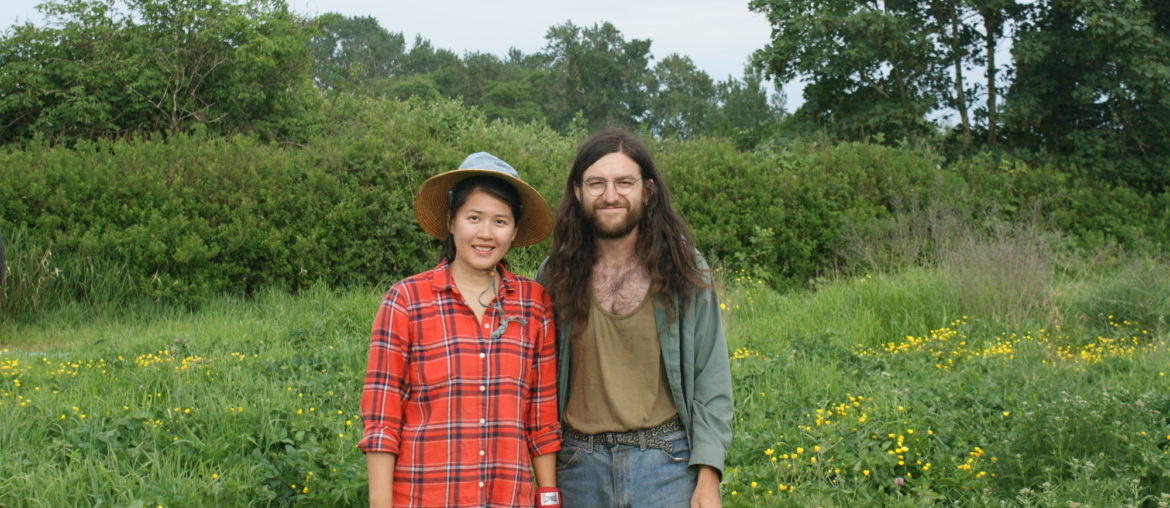

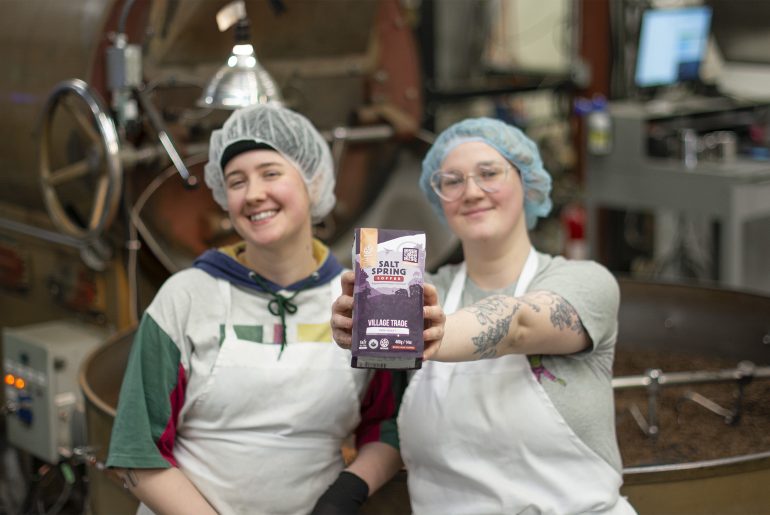

Comments are closed.